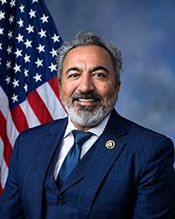0
Tracking Pathogens Act
12/29/2022, 10:03 PM
Summary of Bill HR 7152
One of the key provisions of the bill is the establishment of a national database for tracking pathogens, which would allow for real-time monitoring of outbreaks and the sharing of information between different levels of government. This database would help to identify patterns and trends in the spread of infectious diseases, enabling more effective and targeted responses.
Additionally, the Tracking Pathogens Act includes measures to improve the training and resources available to public health officials, as well as provisions for increased research and development of new technologies for detecting and combating pathogens. The bill also aims to strengthen international cooperation in the fight against infectious diseases, recognizing that global coordination is essential in addressing threats to public health. Overall, the Tracking Pathogens Act represents a bipartisan effort to enhance the nation's ability to respond to infectious disease outbreaks and protect the health and safety of the American people. By improving the tracking and monitoring of pathogens, this legislation aims to prevent the spread of infectious diseases and mitigate their impact on public health.
Congressional Summary of HR 7152
Tracking Pathogens Act
This bill requires the Centers for Disease Control and Prevention (CDC) to take specified actions related to the genomic sequencing of pathogens.
Specifically, the CDC must issue guidance on sharing specimens and other activities to support collaboration in the genomic sequencing of pathogens.
The CDC must also strengthen and expand activities related to the use of genomic sequencing of pathogens in public health surveillance, including by providing technical assistance to health departments. The CDC may award grants, contracts, or cooperative agreements to academic and other laboratories related to these activities.
In addition, the CDC must establish through public health agencies (or partnerships of such agencies) centers of excellence to promote innovation in pathogen genomics and molecular epidemiology.




